I remember exactly when and who it was that taught me that haunted song. It was my earliest (and best) nursery school: Becky’s in Greensboro NC. Becky was pure ‘Thelma and Louise’; she drove a red Cadillac convertible as an accessory to her shiny black hair and fair, smiling face. Becky was always happy, it seemed; outgoing, charming. She also did things all day long and was never at the day-care. Oh, she’d stop in once or twice a day, perhaps; maybe several times in a week. She’d bring in brown paper bags with groceries and we’d have fresh snacks that day. The staff would all bunch up around her, everybody talking a mile a minute at once and she’d turn from one to the other trying to hear them out. But after so many minutes of frantic chatter, she’d dismiss them all with something general like, ‘well, that’s enough of that!’ and then she’d be off, gallivanting around town in her shiny red convertible.
But it wasn’t Becky who taught us, the children. Becky was the dashing owner who charmed the parents. And being a smart business women, she hired only the best for staff. Our beloved teacher was somebody we knew only as Granny. Granny was older than the hills but twice as wise and she was responsible for deciding what our day would be like. She seemed to operate out of long traditions that stretched backward into eternity, ancient ceremonies stacked up like folding chairs waiting to be enacted at her whimsy. One such day found us marching single-file down to ‘the park’. The park was always spoken of with verbal quotation marks around it, but the reason was unknown to any of the inmates. It just was, and we all performed it the traditional way.

“Let me try it on you” I chirped, suddenly liberated from impunity...I held the instrument under his chin, and made him recite the verse . Evidently, Lion was quite the butter-hound for a broad yellow reflection covered most of his neck and jaw; a fact which I announced with solemn gravity.
Lion blushed and melted away like crumpled cellophane in the burn-barrel. Something faint and garbled came out of his shame-faced deposition that sounded a lot like admission.
I knew right then that this herbal magic was powerful and real.
Buttercup as Polygraph
Our first morning hike to ‘the park’ took place on a pleasant sunny day and when we arrived, the grass fields were covered in buttercups. My early buddy, Alan Lion, grew excited as he took in the flower-covered veldt. Right away he reverently picked one and held it up like the holy grail, reciting some kind of strange litany:
“Buttercup, Buttercup
steal your Mother’s butter?”
Then he wielded it at me and demanded to know if I stole my mother’s butter. ‘No, I don’t think so’ I stammered, surprised at the change that had overtaken my former friend. ‘Do people do that?’ I asked, wide-eyed with fright. To be honest, in my home the refrigerator was communal territory and nobody ever had to steal from it. And besides, it was a time when the health-giving benefits of hydrogenated plastics known as ‘margarine’ were universally extolled because it spreads easily on white-bread and doesn’t tear a hole in it. Butter, a semi-obscure relic, was not held in such esteem to be stolen goods; most of us had never even seen it. ‘Why would they do that?’, was my follow-up; a phrase that sort of tumbled out of my gaping mouth in naïve wonder.
Lion, who was obviously older and more knowledgeable than I, went on to explain that you could tell a butter thief from an honest child by holding the buttercup blossom under the perpetrator’s chin: if there was a yellow reflection, it proved the alleged pilferer guilty. Abruptly he tried it out on me, demanding again, as he did so, whether I stole my mother’s butter. A puzzled few minutes ensued as he studied the polygraph results, after which he muttered with a downcast face, ‘I guess not’. I felt relieved and somehow vindicated, for we had no butter in the house as far as I knew. This fact strangely validated the magic buttercup method of inquiry, lending an aura of credibility to the strange incantation.
“Let me try it on you” I chirped, suddenly liberated from impunity, “how does that poem go?”. I held the instrument under his chin, but made him recite the verse because all this was over my pay-grade. Evidently, Lion was quite the butter-hound for a broad yellow reflection covered most of his neck and jaw; a fact which I announced with solemn gravity. Lion blushed and melted away like crumpled cellophane in the burn-barrel. Something faint and garbled came out of his shame-faced deposition that sounded a lot like admission. I knew right then that this herbal magic was powerful and real. “Teach me that poem!”, I demanded (at my tender age, the entire verse seemed long and complicated).
Though Lion had lost much of his early enthusiasm for the technique, he did stick with me in my efforts to learn the proper recitation. I practiced on it all afternoon, but never felt that I had truly gotten it down. In fact, when I tried to tell momma about it later, I could hardly remember enough of the incantation to tell it right. Momma seemed to be puzzled by the whole subject too, which further verified the alien nature of this whole butter rap.



But Granny was our true elder that day and she was in her element, teaching us about all manner of the weird. She recounted many wondrous stories of magical things, ghosts, witches, and fairy rings. And then she taught the group the haunted song:
“All around the Mulberry bush
the monkey chased the weasel.
The monkey thought ’twas all in fun,
‘Pop!’ goes the weasel”
This song had a serious and lasting effect on me. An effect that, I’m not ashamed to admit, has not been altogether beneficial. At the time it caused serious repercussions of deep questioning. For the words are plain enough but the meaning defies any logical satisfaction. For starters, what does it mean by ‘pop! goes the weasel’? Did the weasel explode? I was well aware, even at such a tender age, that if you blow into a balloon and let it go, it shoots across the room making a comical ‘fpppt!’ sound before zig-zagging wildly to hide behind the sofa. Also, if you weren’t careful, the inflated balloon would burst (so you really shouldn’t play with them out in the grass). But why would the weasel explode? That didn’t make any sense and the context of the song provided no further clues.
Since, it was a group song, the children all clamored to sing it back at the nursery, almost on a daily basis for several weeks. I began to loathe this. In addition to the weird words, there was something strange that came over the adults when they sang it too. It was almost as if they were possessed by defective spirits. When they got to the part where the weasel explodes, they invariably cocked their heads to the side and cut their eyes towards the shadows, twisting their mouth into a tense little oval and raising their finger up to wag at the invisible monkey; they incited their vindictive with extra emphasis on ‘Pop!’, trailing off with sneerish sarcasm about the victorious weasel.
Children are sensitive to the affect of their caretakers and none of this escaped our little subconscious life-recorders. We expect wisdom from our elders, not inexplicable vindictive, illogical gibberish, and spirit-possession.
Even worse was the purported explanation. Upon cross-examination, it turns out that the weasel somehow turned on the fun-loving monkey and mounted a vicious counter-attack. Now, every little boy knows that monkeys are serious business and can’t be beaten. Anybody who’s ever seen the Wizard of Oz knows that monkeys can beat the stuffing out of intellectual straw-men. Also, the organ grinder’s mascot is always granted wide berth, unfailingly accompanied by verbal warnings: “watch out for the monkey”, a fore-shadowing technique that inevitably precedes extended chaos and pandemonium. No lightweight little weasel would stand a chance against a full-fledged monkey.
This fact alone lends credence to the exploding weasel hypothesis; all of which is just too much for the innocent pre-kindergarten mind to assimilate. Thus the weasel song quickly grew to be a haunted symptom of dysfunctional adultisms.
But having come this far with the early childhood experiences associated with the booby-trapped marmot song, we might continue in this vein to examine the problematic (and socially inappropriate) tale of ‘little black Sambo’, where the tigers chase Sambo round and round a tree until they all turn into a puddle of butter?
(Posted on February 6, 2019 |Categories: Creative Cascades Tags: Becky’s day care, Buttercup buttercup, pop goes the weasel )